news
leaderships and Succession : TB Joshua’s family, disciples’ crisis worsens, trustee alleges threat to life
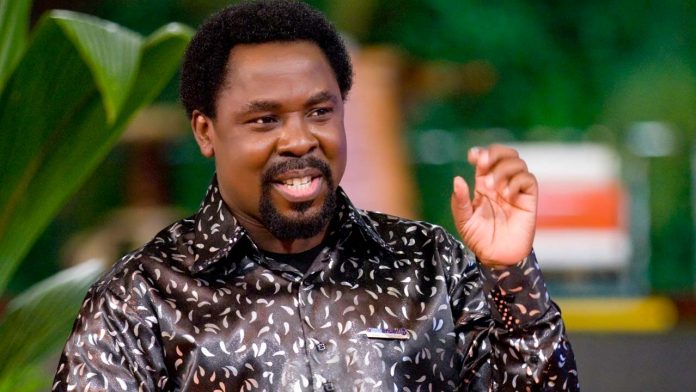
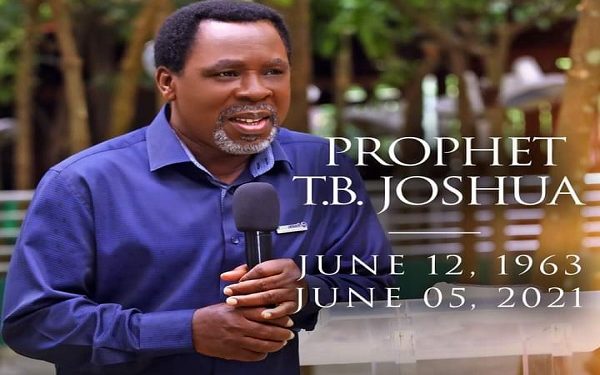 The rift between the family of the late founder of the Synagogue Church of All Nations, Prophet Temitope Joshua, and a disciple of the late prophet is unabated over the running of the church
The rift between the family of the late founder of the Synagogue Church of All Nations, Prophet Temitope Joshua, and a disciple of the late prophet is unabated over the running of the church
The leadership and succession crises at the Synagogue Church of All Nations may not be over as a member of the Board of Trustees, Joseph David, has raised the alarm over alleged threats to his life and those of other leaders of the ministry.
David, who has gone into hiding with other disciples of the late founder of the church, Prophet Temitope Joshua, aka TB Joshua, claimed that the family of the founder was using law enforcement agents to hunt them.
He said this was because of their perceived closeness to the late cleric and supposed knowledge of important details of the church not known to the family.
The Delta State indigene, who spoke to our correspondent from his hideout, alleged that the wife of the founder, Evelyn Joshua, was making spirited attempts to consolidate power around her, adding that influential followers of TB Joshua had been chased away, including foreigners.
He said, “The ministry had disciples, who handled the operation, administration and spiritual affairs of the church. Among them were five prophets, who were always with Prophet TB Joshua.
“The prophet’s wife was never active in the administration of the church. She only functioned ceremoniously, maybe to receive awards for him.
“Before the prophet passed on, he was interviewed by a newspaper, where he answered the question of succession. He said the church is not a family thing, and that was why his wife was not always seen with him.
“Around the period he granted the interview, he had removed her from being a trustee of the church. But she did not know she had been removed until he died.”
David said after TB Joshua’s death, the church had two trustees left – the cleric’s daughter, Promise Joshua, and himself.
He noted that trouble started during a meeting to fill the space left by the late cleric, who was the third trustee of the church.
The Yaba College of Technology graduate said two family members – the prophet’s first daughter and his wife – were suggested by a group, adding that he kicked against it to avoid being easily overrun and removed by the family members.
The 52-year-old said he suggested that if the duo would join, then more non-family members should be added to make for balance of power, an idea that was rejected by the family, as the meeting ended without a resolution.
The evangelist said from that point, there was mutual suspicion between the family and the group of disciples led by him.
He said the suspicion was fuelled by the fear of the family that they were in possession of things that the family did not know about.
“Actually, immediately the man of God passed on, the wife started investigating us and our accounts. We don’t take salaries, and we are not exposed to any issue of money.
“But due to suspicion, she took over the administration of the ministry. All the workers started reporting to her.
“For the 27 years that I was in that ministry, she never handled any matter of administration. But she started making people turn their backs on the disciples, saying we are thieves and robbers. As a result, church workers started refusing instructions.
“Our movement was restricted; our personal freedom was infringed on. We could not shout because we thought this was a family issue and we could bear it,” he added.
David said a man was later asked to mediate between the disciples and the family, adding that the intervention did not work out.
He said his group later decided to concede to the family and allow TB Joshua’s wife take over the running of the church.
The cleric said the disciples were, however, shocked when he reached out to the mediator and they were told that the situation had reached a “gunpowder status.”
“He said for us to avoid the disaster that was coming, all of us as disciples must come together and sign an undertaking to declare Mrs Evelyn Joshua as the new GO of the church and we must sign an undertaking to be of good behaviour. And we should forward all that to him and maybe he would ‘unwalk’ the situation to avoid the trouble that was coming. We saw this as a threat, and we did not know how to respond to his message,” he added.
David noted that the matter reached a climax on September 9 when the family allegedly invited some church members and declared Evelyn as the chairman of the board of trustees and general overseer after obtaining a court order.
Simultaneously, he said security agents went to the Prayer Mountain and dragged out some of the disciples after taking their phones, adding that some workers in the church were also taken to the gallery.
He said, “That evening, all the Nigerian evangelists of TB Joshua, some of whom had stayed with the prophet for 28 to 29 years, the least is 20 years, were sent out.
“But before then, their second daughter, Promise, came with letters from the EFCC and distributed to them before they left.
“Most of the prophets, both Nigerian and foreign, she accused them of theft, fraud and money laundering. After she removed the Nigerians, she threatened the foreign ones that they should go back to their countries. Madam said she did not want any discipleship again.”
The evangelist recalled that before the events of that day, Promise had written to the Nigeria Immigration Service to demand that the residency status of the foreigners be reviewed because their services were no longer needed.
He said when he was informed about the call, he went to Abuja to stop the process because the foreigners were still useful.
According to him, the EFCC had since launched a search for him and others, saying their lives were under threat.
He said, “As we are talking now, we are hiding in a hotel. The EFCC came and we were warned that they were looking for us and we should stay in our rooms. Unfortunately, one of our sisters walked into them and they took her away, despite the fact that we had a restraining order.
“The question is, ‘Why is this woman using the arms of the law to intimidate innocent people?’ The charges at the EFCC against us are completely baseless because we are not in the position to launder money or steal; cash does not go through us. Those who work in the accounts have explained the procedure to her, but she is not listening.
“Now, she has gained control over everything and she is still chasing us. We have tried to sympathise with the family, but we also want the world to hear our side of the story.”
Our correspondent learnt that aside from the alleged stealing and money laundering charges, the EFCC was also looking into allegations of misappropriation of the burial funds of TB Joshua, in which the disciples were implicated.
TB Joshua’s daughter, Promise, said the allegations against the family were unfounded, adding that David and others were only trying to give the church a bad name because their atrocities were exposed.
The 24-year-old explained that the family saw CCTV footage of some persons moving money from the church, claiming that some of the drivers involved in the act had made confessional statements indicting the disciples.
Promise also denied that the family was chasing away those who worked with her father. She said they were only asked to leave pending when the church would resume.
She said, “Everything that happened here was recorded and at the right time, depending on how everything goes, it will be put out for the public to see.
“The constitution of the church was followed to the latter and that was how my mum became a trustee. The day it happened, concerned members of the church appealed to the Corporate Affairs Commission and everything was done legally.
“From the beginning of the ministry, there have always been three trustees. The second time my dad made a change, the board consisted of my dad, mum and my dad’s nephew, Hassan.
“Last year, my dad wanted to put me on the board. His nephew, who used to go to court for him (over the church building collapse), left the church. That was how Joseph (David) was brought in. He did not even know he was a trustee until my dad passed on.
“The only reason my dad made him a trustee was for him to attend the court sessions. My dad would not want my mum to be going to court for him. Joseph was the one that was following Hassan, who left last year.”
On the case with the EFCC, Promise said after her father’s death, a committee was created.
She explained that during the period, the family got reports of heavy movements of cash.
“Even the drivers they were using to move the money were the ones reporting these things. There is also a video where they were caught moving the money. The church lawyers then advised that we should report to the authorities and that was how they were invited.
“The foreigners, who were called to carry the money without knowing what it was, went to the EFCC and were released after they were cleared to go back to their countries with the intention of coming back in about a month. They were not deported; they are coming back.
“These people talking are those I believe are guilty; all the other ones went to the EFCC and returned after they were interviewed. All they had to do was to explain what happened because there is video evidence. I don’t know why they are running; if you are not guilty, go and explain yourself.”
Asked why the foreigners were reported to the authorities, Promise said since the funeral of the late prophet, there had not been any activity in the church.
“And we don’t really feel we should have workers that we don’t need. That was the idea behind that. It was not deportation; we were paying non-essential workers and the church was not operating. So, we said, we don’t need anyone here. You can go back to your country. The person you claim to train under is no more here. These disciples, what did they come to do here? They came to train under TB Joshua, and TB Joshua is not here physically. You came to train under TB Joshua as a disciple. So, the intention of coming to Nigeria was not to take over the church, but to train under him,” she stated.
Promise said the church workers confessed the alleged atrocities of the disciples, adding that the departure of the leaders was a relief to many who had suffered under their yoke.
She slammed David for saying her mother was not trusted enough by the father to carry on with the ministry.
“My dad had always put his family as trustees of the church. I am not surprised; this is expected. The church will soon resume; these ones are the bad eggs,” she added.
A spokesperson for the EFCC, Wilson Uwajaren, confirmed that the case was being handled by the Lagos office of the agency.
Asked about the restraining order, he promised to find out and get back to our correspondent.
He had yet to do so as of press time
news
Nigeria and Türkiye Agree to Accelerate Trade, Energy and Defence Partnerships, Says Tinubu
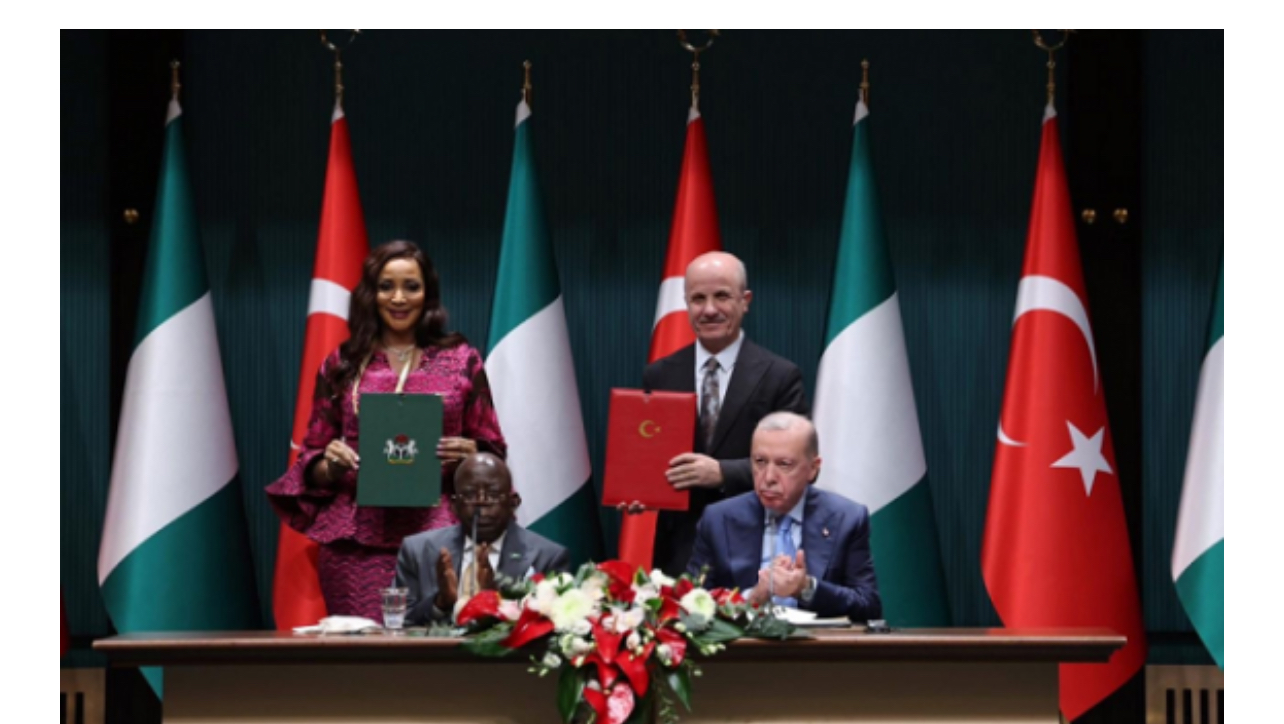
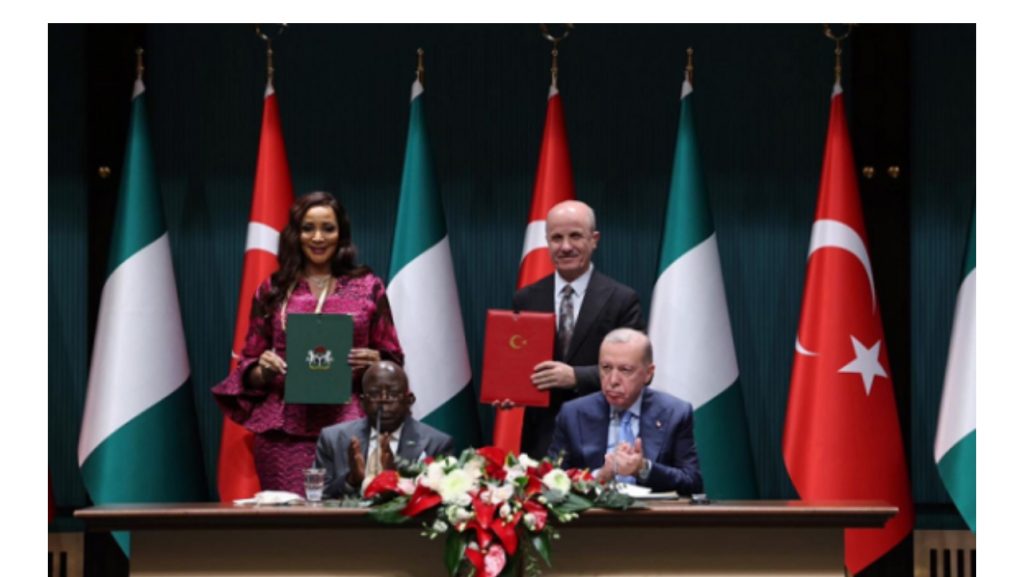 President Bola Tinubu says Nigeria and Türkiye have agreed to fast-track cooperation in trade, energy and defence to boost jobs, investment and shared prosperity.
President Bola Tinubu says Nigeria and Türkiye have agreed to fast-track cooperation in trade, energy and defence to boost jobs, investment and shared prosperity.
The President disclosed this on Tuesday via his official X handle during his ongoing State Visit to Ankara, Türkiye.
Tinubu said discussions with Turkish President Recep Tayyip Erdoğan focused on deepening bilateral relations and delivering tangible economic benefits for citizens of both countries.
“President Recep Tayyip Erdoğan and I reaffirmed our shared ambition, which speaks directly to jobs, investment and opportunity for our people,” the President said.
He said both leaders agreed on the need to expand trade volumes and remove structural barriers limiting business growth between Nigeria and Türkiye.
“We are creating a clear pathway to a five-billion-dollar trade volume between Nigeria and Türkiye,” Tinubu stated.
The President described the talks as practical and forward-looking, driven by mutual interests and shared regional and global responsibilities.
“Our conversations were practical and forward-looking: trade and investment, energy, education, defence cooperation, peace and security,” he said.
Tinubu announced the establishment of a Joint Economy and Trade Committee to drive implementation of agreements and attract fresh investments.
“The creation of a Joint Economy and Trade Committee will unlock new flows of capital,” the President noted.
He said the committee would also support industrial growth, technology transfer and stronger private sector participation.
Tinubu welcomed President Erdoğan’s acknowledgement of Nigeria’s ongoing reforms, especially in the energy and investment sectors.
“I welcome President Erdoğan’s recognition of Nigeria’s reform momentum, particularly in the energy sector,” he said.
The President said the renewed confidence reflected Nigeria’s commitment to transparency, stability and sustainable economic growth.
“We are determined to build an economy that works for everyone, including the most vulnerable,” Tinubu added.
On regional security, Tinubu reaffirmed Nigeria’s responsibility to promote peace and stability across Africa.
“Nigeria will continue to play its role in peace and stability in Africa,” the President said.
He said Türkiye’s expertise in counter-terrorism and defence cooperation would strengthen collective responses to emerging security threats.
“Türkiye’s experience and readiness to cooperate in training, intelligence sharing and counter-terrorism strengthen our resolve,” he stated.
Tinubu said nine bilateral agreements were exchanged at the end of the meetings between both leaders.
The agreements cover defence, education, media cooperation, diaspora policy, trade facilitation, social development and institutional collaboration.
“Nigeria remains open for serious partnership. Open to trade without barriers, ideas, skills and investment that create value and shared prosperity,” he said.
Tinubu reaffirmed Nigeria’s commitment to inclusive growth, peaceful coexistence and active global engagement.
“We are building an inclusive economy. We are strengthening peace. Nigeria will continue to engage the world with confidence and clarity,” Tinubu said.
news
Strengthening Cultural Leadership to Eliminate Violence Against Women and Girls
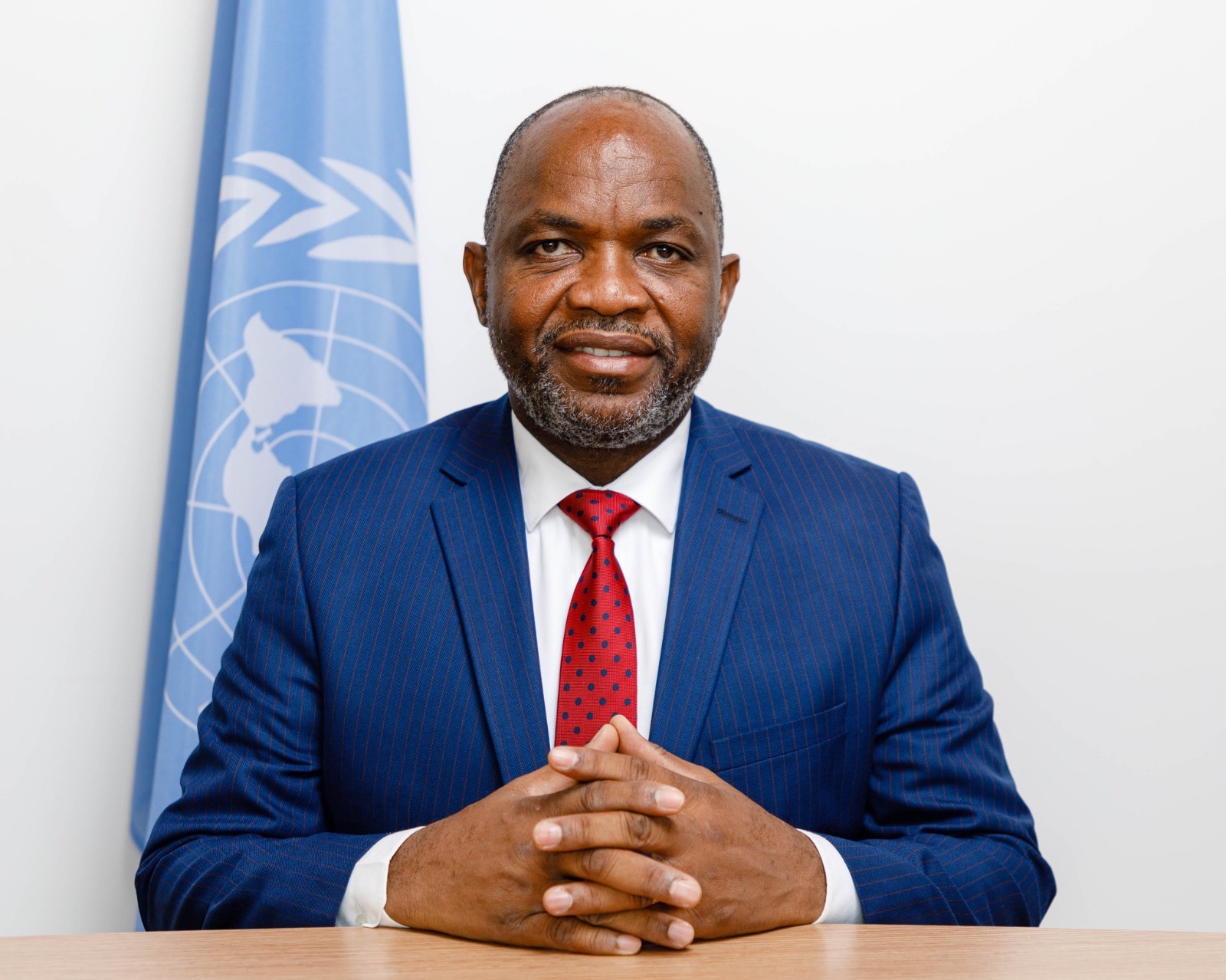
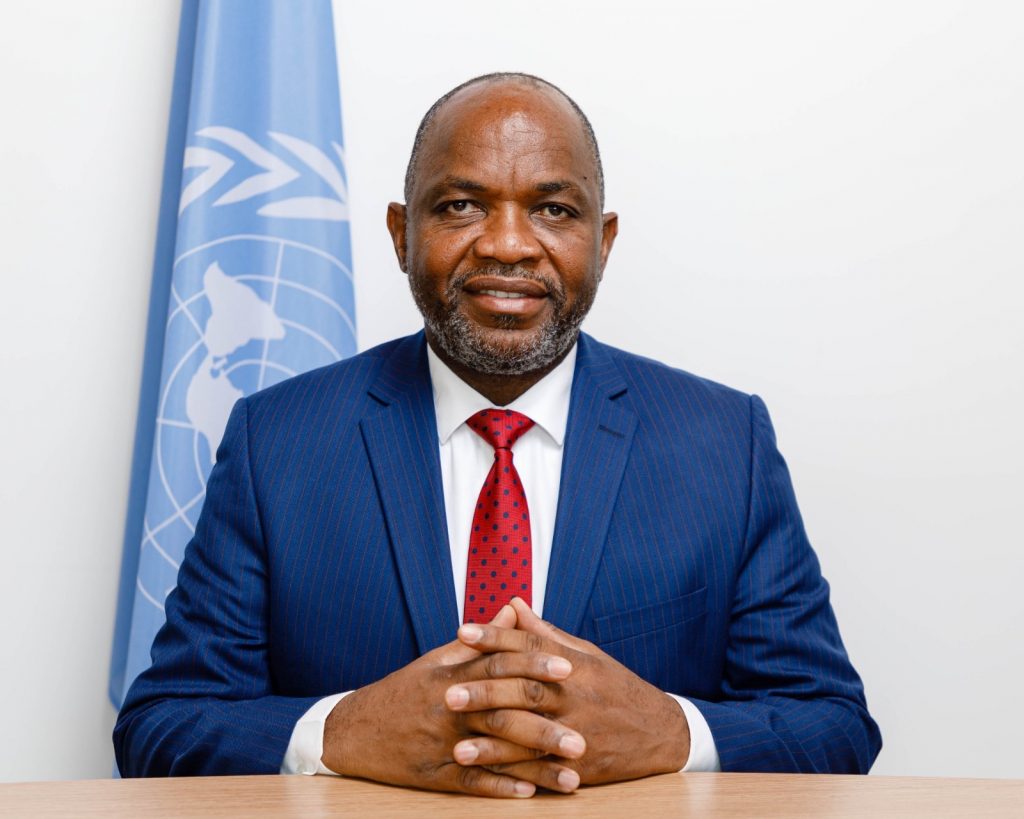
Op-Ed | By Maxime Houinato
As Africa stands at a crossroads in the fight against violence targeting women and girls, the continent’s traditional leaders hold a uniquely powerful key to unlocking lasting change. Their influence—rooted in culture, authority and community trust—positions them not just as custodians of heritage, but as essential partners in redefining norms, protecting rights and leading a continental shift toward safety, dignity and equality for every woman and girl.
In the coming week, traditional leaders from across Africa will meet in Lagos to explore how culture can advance dignity, safety, and equality. Their convening could not be timelier. Violence against women and girls remains widespread, underreported, and a major obstacle to achieving Agenda 2063 and the SDGs. Recent UN and WHO findings confirm that intimate partner and sexual violence persist at alarming levels, underscoring the need for strong, locally led prevention and accountability.
This important convening in Lagos is made possible through the valued support and partnership of the Ford Foundation, whose long-standing commitment to gender justice, human rights, and community-led solutions continues to strengthen efforts across Africa to end violence against women and girls.
Sub-Saharan Africa records some of the world’s highest rates of intimate partner violence, with studies showing that over 40% of women surveyed have experienced emotional, physical, or sexual abuse. Regional data platforms confirm that both lifetime and recent intimate partner violence remain alarmingly common. The effects also span generations: research across 37 African countries links mothers’ experiences of violence to higher risks of illness, undernutrition, and even death among children under five, highlighting IPV as a major threat to child survival and public health.
Where culture must evolve
Africa has made notable strides, yet harmful practices still put millions of girls at risk. West and Central Africa remain the global epicentre of child marriage: nearly 60 million women and girls in the region were married before 18, with Nigeria bearing the largest absolute numbers. These figures, drawn from UNICEF’s databases, remind us that while progress is possible, it is not guaranteed without sustained, community-anchored change.
There are bright spots. In Kenya, the latest Demographic and Health Survey shows FGM prevalence fell to about 15% in 2022, down from 21% in 2014, a testament to policy commitment and local norm change. Yet prevalence remains extremely high among several communities, and sustained vigilance is required to prevent medicalisation or cross-border practices.
Nigerian realities, African momentum
Nigeria mirrors the continental picture: national surveys and administrative data point to widespread physical, sexual and emotional violence, with thousands of cases reported to authorities each year, figures that almost certainly undercount the true burden. The Government’s National GBV Data Collation Tool is an important step toward standardising reporting and improving coordination; scaling it nationwide and linking it to survivor-centred services will save lives.
Encouragingly, the upcoming Conference of African Traditional Leaders in Lagos, already drawing commitments from eminent leaders, signals growing recognition that cultural authority can be mobilised to protect women and girls. UN Women’s work with traditional councils across Africa has shown that when custodians of culture publicly denounce harmful practices, backed by evidence and community dialogue, norms shift and laws gain legitimacy. It is why we helped catalyse platforms like the Council of Traditional Leaders of Africa to champion the abandonment of child marriage and FGM.
Law works best when culture leads
Africa’s legal architecture has advanced. The Maputo Protocol, our continental bill of women’s rights, has spurred reforms, and the African Commission recently moved to develop a Model Law to accelerate domestication and harmonisation across countries. These instruments matter: they provide standards, remedies and budgets. But their power is realised when interpreted through community values that affirm women’s dignity.
Evidence from the Spotlight Initiative, the EU-UN partnership with the African Union, shows that multi-sector, locally-led approaches can reduce harmful practices, strengthen services, and improve prevention. Traditional and religious leaders who champion public declarations, alternative rites of passage, and community bylaws help convert state law into lived practice.
A practical agenda for traditional leaders
I urge traditional leaders to make clear, practical commitments that have been proven to drive change: publicly and repeatedly denounce harmful practices such as child marriage, widowhood rites and FGM, backing declarations with community bylaws aligned with national law; promote survivor-centred justice in customary systems through strong referral pathways, bans on forced reconciliation, and proper case documentation; safeguard girls’ childhoods by ensuring birth and marriage registration, enforcing 18 as the minimum age of marriage, and supporting re-entry to school for married or parenting girls; encourage alternative rites of passage and positive models of masculinity that reject violence; and use their influence to push for stronger laws, adequate funding, and community engagement to address all forms of violence against women and girls.
Culture is not a relic; it is a living promise we renew with each generation. As guardians of that promise, Africa’s traditional leaders can be the champions of a continental transformation: from harmful silence to protective speech, from permissive norms to zero tolerance. If we act with urgency and unity, a life free from violence can become every African woman’s and girl’s lived reality.
Maxime Houinato is the UN Women Regional Director for West and Central Africa, providing strategic leadership across 24 countries to advance gender equality, strengthen women’s rights, and accelerate the elimination of violence against women and girls. In this role, he guides UN Women’s regional programmes on women’s economic empowerment, governance and political participation, humanitarian action, and the prevention and response to gender‑based violence.
news
Update : FG Outlaws Meter Installation Charges, Vows to Sanction Defaulters
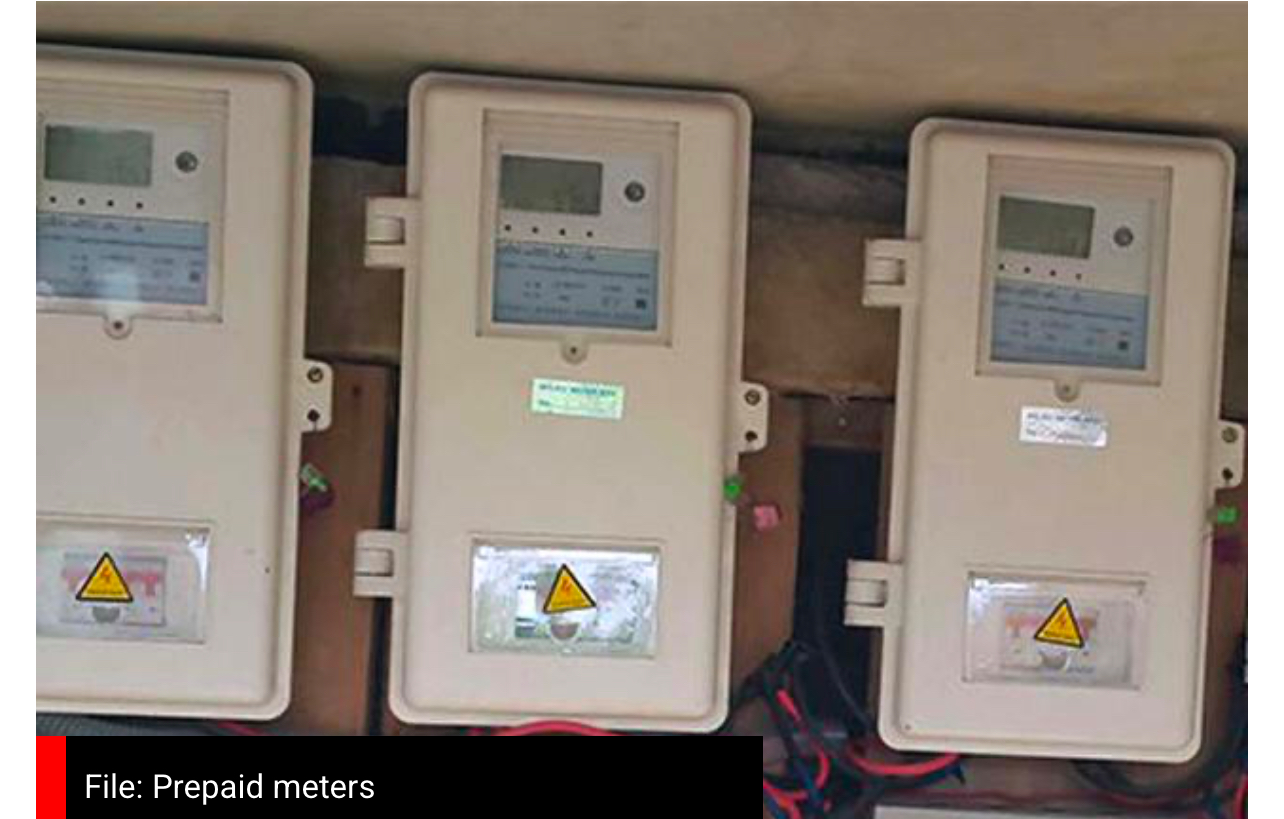
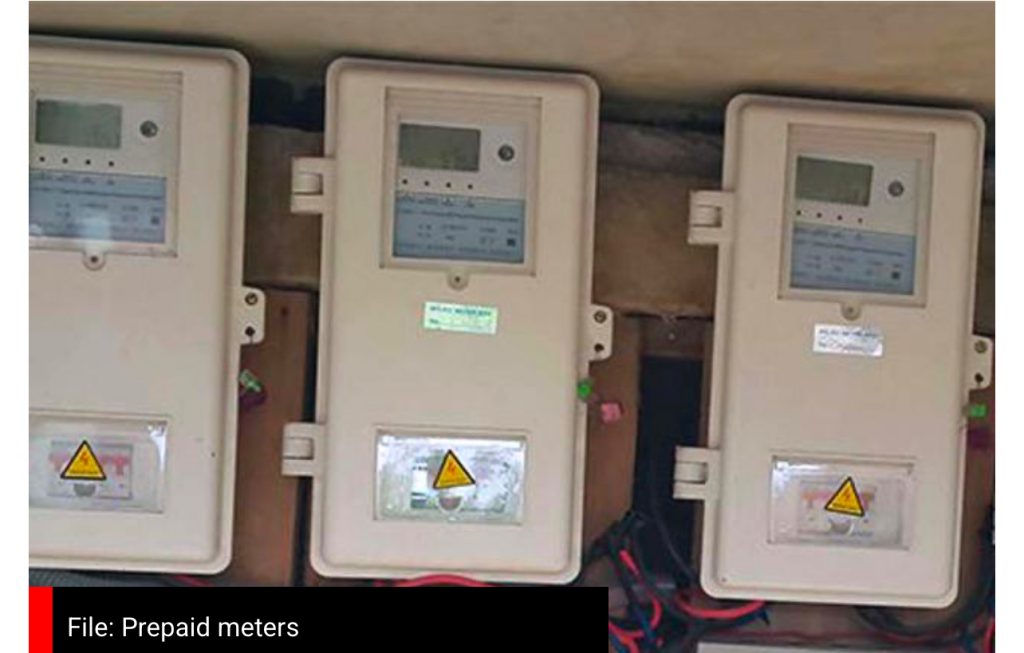
The Federal Government has banned electricity distribution companies and installers from collecting any form of payment for meters, warning that DisCo officials and installers found extorting customers will be prosecuted.
The Minister of Power, Adebayo Adelabu, issued the warning on Thursday during an on-site inspection of newly imported smart meters at APM Terminals, Apapa, Lagos.
Adelabu said the meters were procured under the World Bank–funded Distribution Sector Recovery Programme and must be installed for consumers free of charge, stressing that any demand for money would be treated as an offence.
Adelabu, who was received into the Apapa Port Command of the Nigerian Customs Service by Area Controller Emmanuel Oshoba, expressed happiness over the importation of another tranche of 500,000 smart meters under DISREP.
He said the meters would be given to all electricity customers, regardless of their band. “I want to mention that it is unprecedented that these meters are to be installed and distributed to consumers free of charge—free of charge! Nobody should collect money from any consumer. It is an illegality. It is an offence for the officials of distribution companies across Nigeria to request a dime before installation; even the indirect installers cannot ask consumers for a dime.
It has to be installed free of charge so that billings and collections will improve for the sector.
“The main objective of coming here today is to carry out a physical on-site inspection of shipments of smart meters that the Federal Government has imported under the World Bank-funded Distribution Sector Recovery Programme. This programme is supporting the Federal Government to import a total of about 3.4 million meters in two batches; the first batch is 1.43 million meters, out of which we have received close to about a million meters. Currently, almost 150,000 meters have already been installed across all distribution companies in the country.
“And what we have today is close to 500,000 meters that we just received. They are all smart meters, and I believe that the journey of completely eliminating the meter gap in the Nigerian power sector has just begun,” Adelabu said, even as he expressed dissatisfaction with the pace of metering.
Adelabu was optimistic that in a couple of years, every household, business, and institution would be fully metered so that billings and collections in the power sector would become more transparent, fair, and just. He added that it would also improve the readiness of electricity consumers to pay their bills, leading to improved liquidity in the sector.
“I’m quite excited and elated with what’s happening because it’s unprecedented. This is the first time in the history of this country that a government will be importing and locally buying this number of meters to ensure that the power sector is completely transformed. This is like walking the talk. Our target reform in the sector is not just verbal. Nigerians can see that this is real; it’s not just a promise of the tongue.
“We said it is free. We are not saying this behind closed doors. We are telling Nigerians that the distribution and installation of these meters in every location is free of charge, and it is declared an offence—an illegality—for any DisCo official or installer to request money from the beneficiaries of these meters. We will track and monitor this installation. We also await tip-offs. We have the regulatory commission (NERC), which has offices in some of these locations, and the state regulatory authorities also have offices in each state.
“We are going to open a customer complaint desk whereby, if you notice any such requests for illegal money, you report it, and the authorities will follow up. We are not leaving the installation to the DisCos alone; we’re also creating an interface between the installers and consumers to accelerate the pace of installation. We have some issues with the data and addresses of unmetered customers. We are working hand-in-hand with the DisCos to ensure clean data so that we can accelerate installation.
“We also want to maintain a register whereby unmetered customers can register their names. Once we have a list, we will validate it with the DisCos, improving the pace of installation. We are looking for confirmed cases of requests for money by any DisCo official or installer. Nigerians will know what we can do, and it will serve as a deterrent for others not to commit such an offence or illegality. That’s the plan.
“Extortion is not allowed, but there must be confirmed cases of such extortion, and the officials involved—no matter how high—will be prosecuted. It will be publicised and serve as a deterrent to others with similar intentions. We will not allow that. This is a government effort, and no activity of a DisCo or installer should frustrate government efforts to ensure that life is made easy for Nigerians and that we have a stable, reliable, and functional power sector,” he said.
Adelabu added that the Tinubu administration is resolving a decades-long problem that has affected liquidity. “But the boldness, courage, and political will of the government to go ahead with this should be commended. We will track it end-to-end to ensure that the government’s effort is well implemented and our desired objectives are achieved.
“The aggregate meter gap covers all categories of customers. We are not discriminating. We are prioritising every Nigerian, every customer, every electricity user. The issue of Band A, Band B, or Band C is temporary; it is our systematic way of ensuring this reform reaches everyone. The meters will be given to all levels of customers and not restricted to a single band. I am committing to that,” he stressed.
As journalists expressed doubts over the possibility of free meter distribution to customers, the Director-General of the Bureau of Public Enterprises, Ayo Gbeleyi, stated that the bureau coordinates the implementation of the Distribution Sector Recovery Programme on behalf of the Federal Government and serves on the boards of all 11 electricity distribution companies.
Gbeleyi said, “Regarding concerns that DisCos are delaying meter installations, you will soon see a new order or circular from the Nigerian Electricity Regulatory Commission prescribing the protocols and processes DisCos must follow to ensure unhindered access for meter installations.
“We are monitoring this. We have our dashboard, trackers, and all stakeholders’ hands on deck to ensure seamless and rapid deployment of these meters. One more thing—the meters here are manufactured to the specific requirements of each DisCo. They are inscribed on the meter, with an anti-theft protocol embedded. The configuration is for a particular DisCo, so a meter configured for Eko DisCo cannot be installed in Ibadan.”
Speaking, the Chairman of Mojec, Mojisola Abdul, said the meters supplied by the Federal Government are designed to genuinely generate more revenue for the country and supply more power.
“I’m telling you, physically, we have installed almost 150,000 meters, and they are free. Don’t give anybody money. You are not allowed. We had a meeting Wednesday with the minister and the DG of BPE about further progress on making it easy for every Nigerian. We are calling it mobile registration of free meters. If you register today, your meter will be installed within three days,” she said.
On the delay in meter installations after months of application and payments made, the minister reassured, “This is our country. It is valid that there will be apprehensions and reservations because of past experiences. Previously, there was limited meter availability, and payment was required.
“But this programme has two advantages: first, the volume is now sufficient—we have received almost 1 million meters, with another 1.55 million meters coming in the second phase. Second, the meters must be installed free of charge. The complications experienced in the past will be completely eliminated. We had a meeting on Wednesday for almost two to three hours to discuss all existing complications and foreseeable difficulties, and I assure you we already have effective solutions to all these problems.”
Adelabu also visited the National Meter Test Station in Oshodi, where meters are tested by the Nigerian Electricity Management Services Agency to ensure they meet required standards. Nigeria currently has over five million customers under estimated billing.
-

 news5 years ago
news5 years agoUPDATE: #ENDSARS: CCTV footage of Lekki shootings intact – Says Sanwo – Olu
-

 lifestyle6 years ago
lifestyle6 years agoFormer Miss World: Mixed reactions trail Agbani Darego’s looks
-

 health5 years ago
health5 years agoChairman Agege LG, Ganiyu Egunjobi Receives Covid-19 Vaccines
-

 lifestyle4 years ago
lifestyle4 years agoObateru: Celebrating a Quintessential PR Man at 60
-

 health6 years ago
health6 years agoUPDATE : Nigeria Records 790 new cases of COVID-19
-

 health6 years ago
health6 years agoBREAKING: Nigeria confirms 663 new cases of COVID-19
-

 entertainment1 year ago
entertainment1 year agoAshny Set for Valentine Special and new Album ‘ Femme Fatale’
-

 news8 months ago
news8 months agoBREAKING: Tinubu swears in new NNPCL Board


